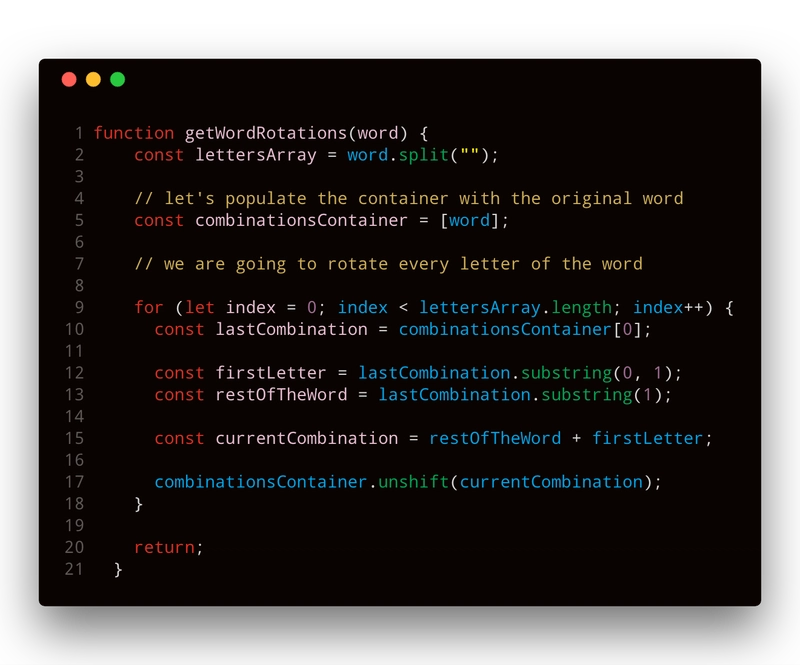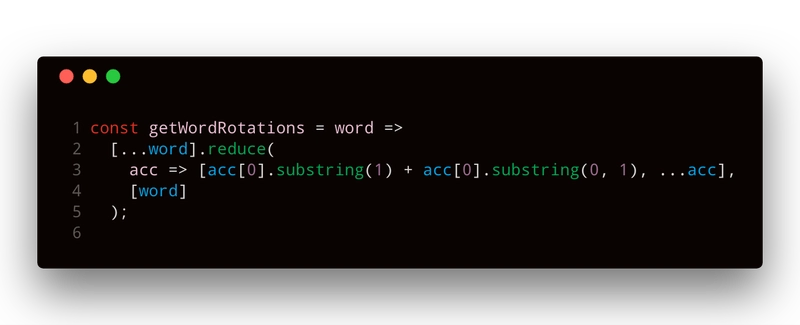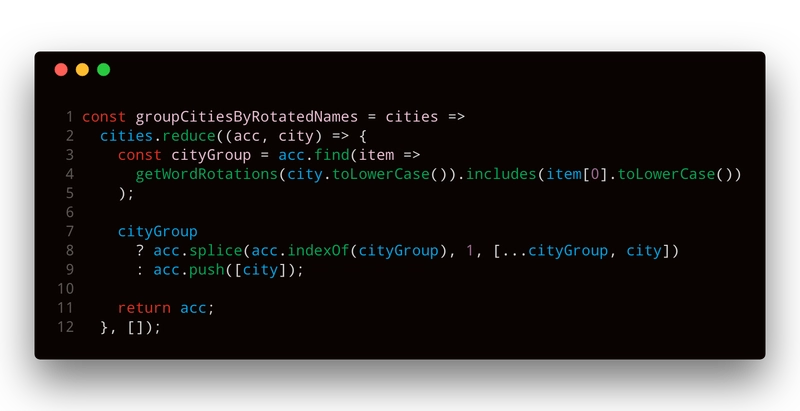Whiteboard coding interviews can cost you a job
Recently I’ve been quite close to getting a job at one of the Big 5. I went through the screening process and the take-home assignment smoothly but I failed to pass one of the final stages, a set of one to one, or two to one, interviews:
- Whiteboard coding interview: algorithms.
- Technical interview: JavaScript, CS, React.
- Culture fit: that.
- Second whiteboard interview
It went wrong
There are a few mistakes that contributed to this temporary debacle.
I may have passed the techical test and the culture fit (let’s just assume that) but I admittedly performed badly at the whiteboard coding interviews.
Thinking in retrospective about that day I couldn’t expect any different outcome.
The truth is: I’m not prepared to do whiteboard interviews.
Whiteboard interviews
The whiteboard interview is, in some ways, a hybrid of a technical test of the depth of your knowledge and also a social exercise
(source)
We all know what it is, right? it’s not much about the code, it’s about your solving abilities, it doesn’t matter if etc etc…
I’m a frontend developer, I generally don’t implement interview-like algorithms or articulate my thought process while I code, I sort of make interactive UIs most the time.
How much do these tests tell about a candidate anyway?
Someone even said:
In real life, you would rarely just whip up an off-the-cuff algorithm from memory in the middle of a coding session. You are almost always going to use an existing library, which has its own test suite, and has survived the scrutiny of other developers.
The only world where you would actually need to be able to recall an algorithm would be a post-apocalyptic one, where the hard drives of all the computers connected to the internet were fried, and all copies of foundational academic papers and computer science textbooks had been reduced to ashes.
My opinion tend to match the one of the aforementioned author although I like to believe that such a skill (being good at whiteboard interviews) is about having a set of very good to have other skills, soft and hard.
Mitigating circumstances first
I’ll make this list because you may relate to some of them but most of all I still have to vent a little bit 😄
- I didn’t do the interview in my first language. Under pressure and under the spot it suddenly becomes more difficult to talk in english.
- I’m a self taught frontend developer. I lack an academic preparation.
- I didn’t do many interviews in my career. And not many of them had whiteboard interviews kind of tests.
- I don’t do much public speaking. Unfortunately, at the moment, not much.
You could object that none of these are actually mitigating circumstances and you would be right.
By definition, mitigating circumstances are out of our control: the truth is that I could improve my English, do more CS, do more interviews, do more public speaking.
I’m gonna try to solve that first whiteboard test the way I should have done that day and I’m going to try to report the process here.
The Test
;['Tokyo', 'London', 'Rome', 'Donlon', 'Kyoto', 'Paris'][
// YOUR ALGORITHM
(['Tokyo', 'Kyoto'], ['London', 'Donlon'], ['Rome'], ['Paris'])
]
That’s it. If you rotate the letters of each city you may or may not match another city. In case you do, put them together in a array on their own.
At work you’re escaping labyrinths of thousands of lines of code on a daily basis, how difficult is to show these people how to solve this simple and even kinda funny problem? Hold my beer.
Yeah…
Let’s pretend it went slightly differently.
The perfect whiteboard interview
Catchy paragraph title, although wrong. This is just the way I could have solved this test, both code and thought articulation. Who know how many other ways there are!
Me: thank you very much. I’ll gladly solve this problem for you (little bow)
Me: First question, do the letters just ‘rotate’ or they can be randomly mixed up?
Larry (to protect the privacy of the interviewers, I changed their name into a fancy one): Just rotate. First letter goes last, etc.
Me: right.
Larry: right.
Me: Right! I guess to start I would need a way to rotate the letters of each city. Tokyo would became okyoT, then kyoTo, oh cool! we’ve got kyoto now! Ok, I’m going to need a function to do that.
Me: I also need a way to loop through the input cities, ‘rotate’ the letters, do some matching and lastly grouping them together. I see that the input and the output are both arrays and they both contains the same values, the only difference is the depth of the two arrays, a flat one and an array of arrays.
Still me: I’m gonna write some pseudocode now to validate my thoughts. Later I’m going to test it too, cause I’m that good. 😏
function groupCitiesByRotatedNames(cities) {
// use a variable to contain the output.
let output = []
// loop through each of the cities
// rotate the name in any possible combination
// check if the output contains a city that matches a combination
// add that city to the array containing the match
// otherwise add the city to the output as a new array
return output
}
Me, confident as a rockstar: let’s pseudotest my pseudocode (😛).
const input = ['Tokyo', 'London', 'Rome', 'Donlon', 'Kyoto', 'Paris']
console.log(groupCitiesByRotatedNames(input))
// That's how it would build up. The final output would be the last array:
// [
// ["Tokyo"]
// ]
// [
// ['Tokyo'],
// ['London']
// ]
// [
// ['Tokyo'],
// ['London'],
// ['Rome']
// ]
// [
// ['Tokyo'],
// ['London', 'Donlon'],
// ['Rome']
// ]
// [
// ['Tokyo','Kyoto'],
// ['London', 'Donlon'],
// ['Rome']
// ]
// [
// ['Tokyo','Kyoto'],
// ['London', 'Donlon'],
// ['Rome'],
// ['Paris']
// ]
Let’s start implementing this algorithm.
First, the utility to rotate the letters of the city names. I will create a utility function:
Me: let’s make this function a bit smoother (and less readable). Overconfidence at its peak.
Me: Right! I like the reduce method, I’m gonna use it again! (It’s also very functional-programmy so it’s cool to use in an interview 😎)
The
reduce()method applies a function against an accumulator and each element
in the array (from left to right) to reduce it to a single value
(MDN).
Our single value being the desired output.
Let’s sum up what this algorithm does:
We check for each city in the cities array, we rotate the nameand we match
every combination with the accumulator value. If we find something we add the new city to the array containing the matches (with Array.splice) otherwise we just push a new array containing our new city.
Et voila’:
All together now!
The actual whiteboard interview
I started from the solution. I said, ok, I’m gonna need a reduce method. I immediately approached the board to write actual code without really knowing the plan. I did have an idea of the solution, pretty much the one I wrote in the previous chapter, but I didn’t articulate it, I didn’t really explain it consistently to my poor interviewers. So I got lost in the code, I lost the the train of my thoughts several times, I also stumbled on syntax errors, in a mix of poor written pseudocode and actual code. There was no way to turn the tide at this point. A performance like this can make a lot of damage to the outcome of the interviews, especially if you let this affect the rest of the process on your side.
What should I do now
Practice, practice, practice.
Get a whiteboard, pick a problem and talk out-loud to the air and write, do that a lot.
Practice the whiteboard interview, learn the routine. Your routine, any routine. Learn it like a song on the guitar, a card trick or whatever dangerous stunt with your skate.
You need to prepare a speech, it’s like a presentation.
It’s like a presentation with variables.
A variable is the problem.
I’ll go like this:
- I’ll spend some time analysing the requirements (1 min)
- I’ll formulate questions if necessary and get answers (3 min).
- I’ll pause and think of a direction to take (few min, don’t be afraid to stay silent for a while).
- I will propose initial solutions and get feedback from the interviewers (5 min).
- I will pause again and choose a solution (2 min).
- I will write pseudocode (5 min)
- I will test my pseudocode (5 min)
- I’ll finish by transforming the pseudocode into actual code. (until necessary)
In around 30 min I will have solved the problem in a enjoyable and ordinated way.
Conclusion
Thanks for reading
And Thanks Adam Mackintosh and Josh Comeau for proof-reading this :)
Hello, my name is Albino Tonnina, I’m a frontend engineer who does bad whiteboard interviews at the moment and works in London, you can find me on Twitter or Github or Instagram or around the city.









Latest comments (63)
And how to get a job in 10 minutes => loopcv.pro
Nice article. I too suffer from lack of skill at whiteboard interviews. Bummer you missed your chance this time at a big five. Keep at it; you can do it. A thousand no's but one yes is still a yes. Keep ya' chin up, you got this.
Hello !
I tried your problem, just to see if I can do it, I've used an ASCII sum, I think it should work, what do you think?
Go here: repl.it/@hydroweaver/how-to-lose-a...
I apologize for the code not being readable, I'm trying to slowly get there :)
Hi Albino and friends,
Documented this "interview pattern" on a post here: medium.com/@dimist/red-flags-in-in....
After some deliberation I find it difficult to get out of my life, study algorithms for some time just to pass an interview, and then forget them, unless the interviewer confirms that day to day activities consist of doing such things.
I have a friend in a similar situation like you (self taught, Italian :), front end). His approach is to iterate through many companies until he finds one that does not do that type of interviewing, they are out there.
Hey ciao! ;)
Thank you so much for your comment, really appreciate it! Gonna read the article very soon, from the beach (taking a break from all this interview madness :P )
From reading your post: do a reverse Cinderella thing: instead of trying to change your foot to fit the shoe, get another shoe.
(and post pics with lots of sand).
Personally, I think a Whiteboard interview would just infuriate me. I watched a mock whiteboard interview on YouTube done by one of the "Big 5" and I was pissed at the end. It felt to me that the interviewer was just trying to trip up the interviewee. Kinda like, "You think your smart eh? Then prove it, Dumb Dumb." Frankly, I think Whiteboard interviews strip companies from hiring very talented thinkers and coders and they also seem slightly dehumanizing. IMHO
Chapeau 😊
That was great, thanks!
Man, do I empathise! Thank you for sharing your experience!
Really nice use of .reduce() there in the getWordRotations, been studying the implementation and curious how this thing knows when to return the array 🤔
Ok never mid, it's [...word] spreading it into an array which is just being used as an 'iterations count'. Noob moment there 😝
White board interviews 'should' be about how you think on your feet and whether you can explain your process. 'But' they seldom are. Frequently, the interviewers are technical people and they are expecting a specific set of solutions - ones they have seen before for a given problem.
It is possible to practice, even memorize, specific algorithms. There are books out there that are set up in a nice format to do so. I have read through and worked with many algorithms, but refuse to memorize them. Because I LIKE thinking through a problem and devising new strategies.
I often fail whiteboards! And I'm okay with that. The few times I've turned the interview around (because I wasn't totally whipped) have been when I started speaking to what I do know, to what I can do, and why. It is unfortunate that many interviews are about regurgitation.
Just my two cents, here, but I think the interviewers are looking to see if think about grouping the city by length first, and then check for rotation matches.
Then, if you want bonus points, I would not write a function that create the rotations for one city, but checks if two cities are rotation matches. You don't really need to creates strings, just compare offset indexes. You can quickly decide that a pair of cities are not a match here, by finding all the letter in the second city that match the first letter of the first one: if none, not a match ever, and if there are, then you just reduced the number of possible rotations "anchors".
Granted, not necessarily easy to think about all that under pressure, but that is what a whiteboard coding interview is: not focusing on the small syntax details, but on the general approach to the problem.
That's a nice idea. I also just thought of a useful way to check if two strings x,y are rotations of each other.
x is a rotation of y iff x occurs in yy and size(y) = 2*size(x)
Actually, it's quite similar to what you're suggesting.
Some comments may only be visible to logged-in visitors. Sign in to view all comments.